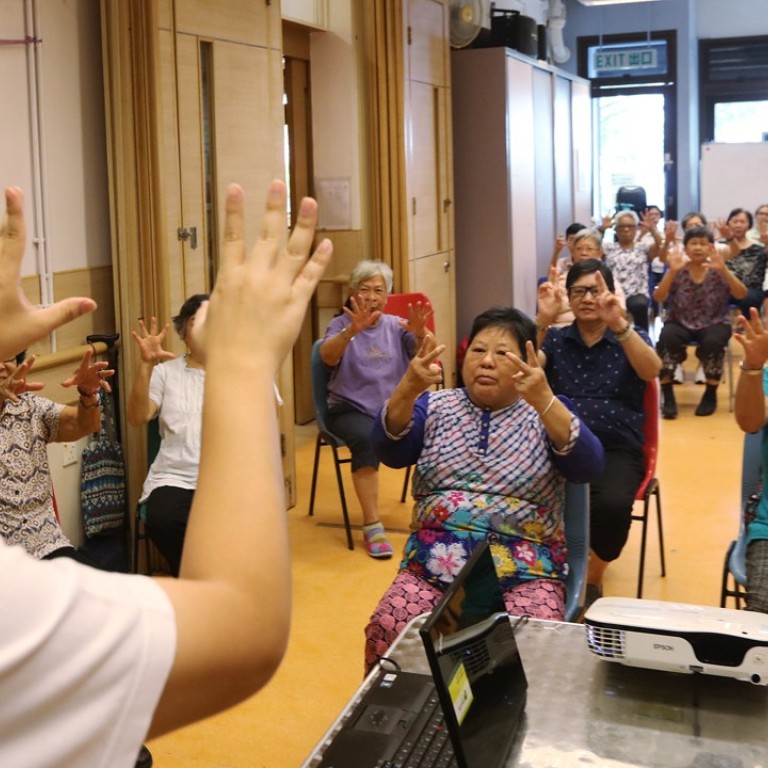
Will increased community support solve Hong Kong’s strained elderly care services?
Equipping community centres with basic health services for the elderly and issuing thousands of care service vouchers among raft of measures expected
For 75-year-old Wu Siu-ping, who suffers from chronic illnesses, the long wait to see a doctor at a public clinic in Aberdeen can be an exhausting and mind-numbing experience.
“You have to wait for a long time – two to three hours – to get to see the doctor for 10 minutes and after that you have to wait another hour for the medicine,” she said.
But with the help of a volunteer nurse who now provides health consultations to the elderly at a care centre nearby, Wu can cut down on the dreaded trips to the clinic.
Elderly Hongkongers could have more say in end-of-life care under policy address proposal
“I have seen the doctor less often now and only return to the public clinic for follow-up appointments,” Wu said.
Similar accounts have been told by other patients at the Southern District Integrated Elderly Service Centre – run by the Aberdeen Kai-fong Welfare Association Social Service Centre – in Wah Fu Estate, one of the oldest public housing estates in southwestern Hong Kong.
The centre is one of few elderly community care facilities in Hong Kong running such a pilot scheme providing primary care to elderly people who live within walking distance.
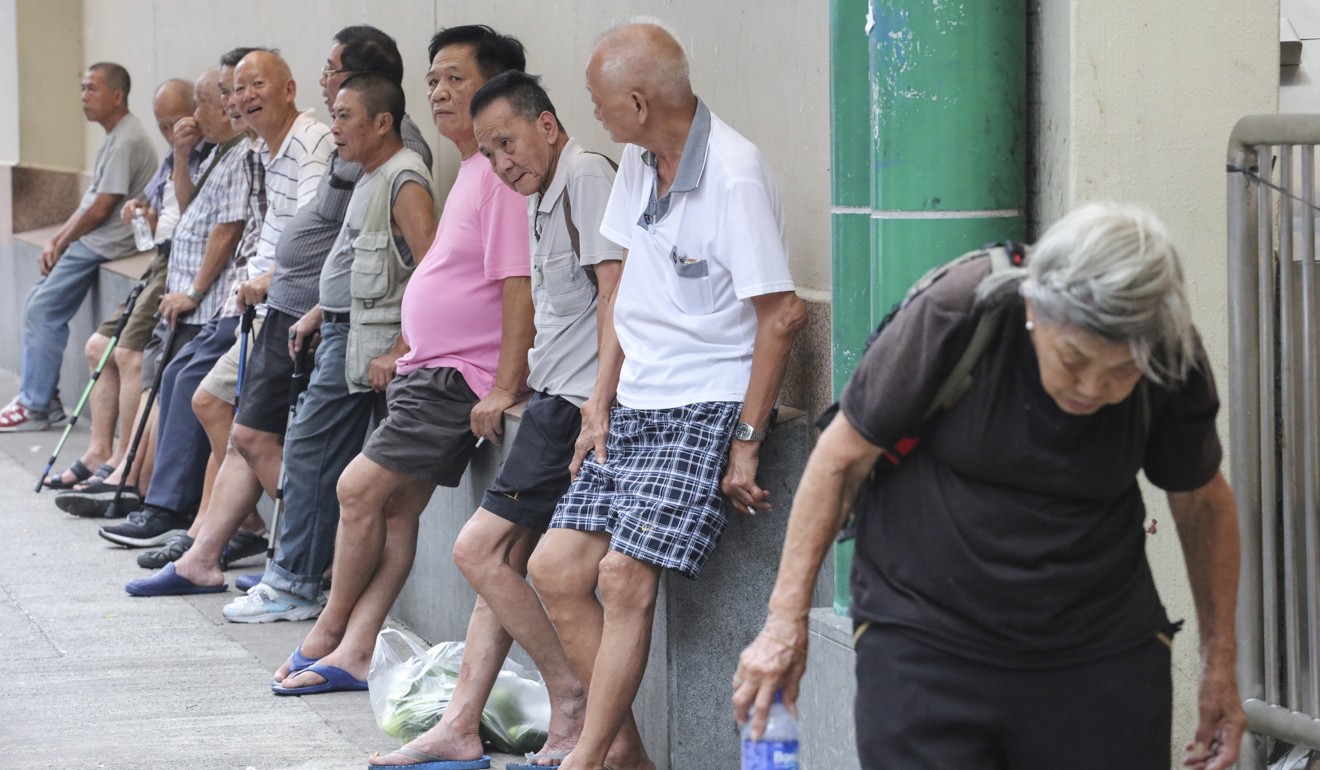
According to a government source, Lam will confront the issue of the city’s ageing population by unveiling several strategies to strengthen the primary care system in a bid to minimise the number of elderly people staying in hospitals.
This would include setting up a committee to formulate future primary care policies, equipping community centres currently under the Social Welfare Department with basic health care services and issuing thousands of community care service vouchers. The vouchers entitle the holder to subsidised home care or day care from a number of different centres, which they can choose from.
Dr Lam Ching-choi, chairman of the Elderly Commission, a government advisory body, said he supported the idea of empowering some 200 District Elderly Community Centres and Neighbourhood Elderly Centres to provide basic health checks for the elderly. The centres currently focus on offering training and respite care services.
Revealed: why hospital chief wants to give Hongkongers the option to die peacefully in their own homes
“Hospital services will be overloaded if the primary care system is not functioning well,” Lam Ching-choi, who is also an Executive Council member, said.
According to statistics provided by the Hospital Authority, elderly residents in New Territories East may face a wait of up to 184 weeks for specialist outpatient services in orthopaedics and traumatology, and 102 weeks to see a doctor specialising in internal medicine.
Because of the lack of community support, Hong Kong has one of the highest proportions – 6.8 per cent, double that of Japan and Singapore – of elderly people aged 65 or above living in nursing homes, a figure which contradicts the government’s pledge to allow seniors to “age in place”.
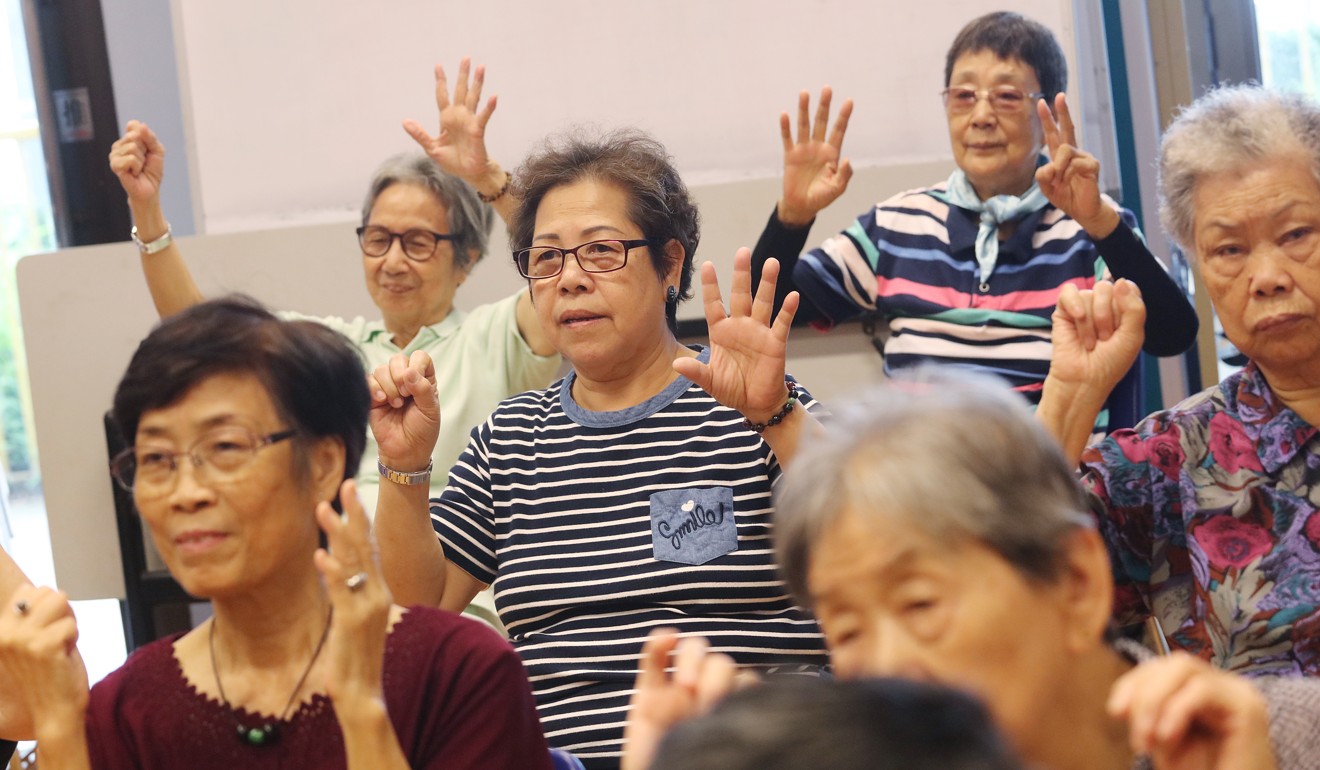
Over 60 per cent of beds provided by the Hospital Authority are also occupied by elderly patients.
Lam Ching-choi said the trend could be reversed if the city put more effort into preventive health care instead of just disease treatment.
Back at the Southern District Integrated Elderly Service Centre, the wide-ranging consultation sessions conducted by the nurse – who volunteers two full days per month – cover medical symptoms, pain relief or even psychological well-being.
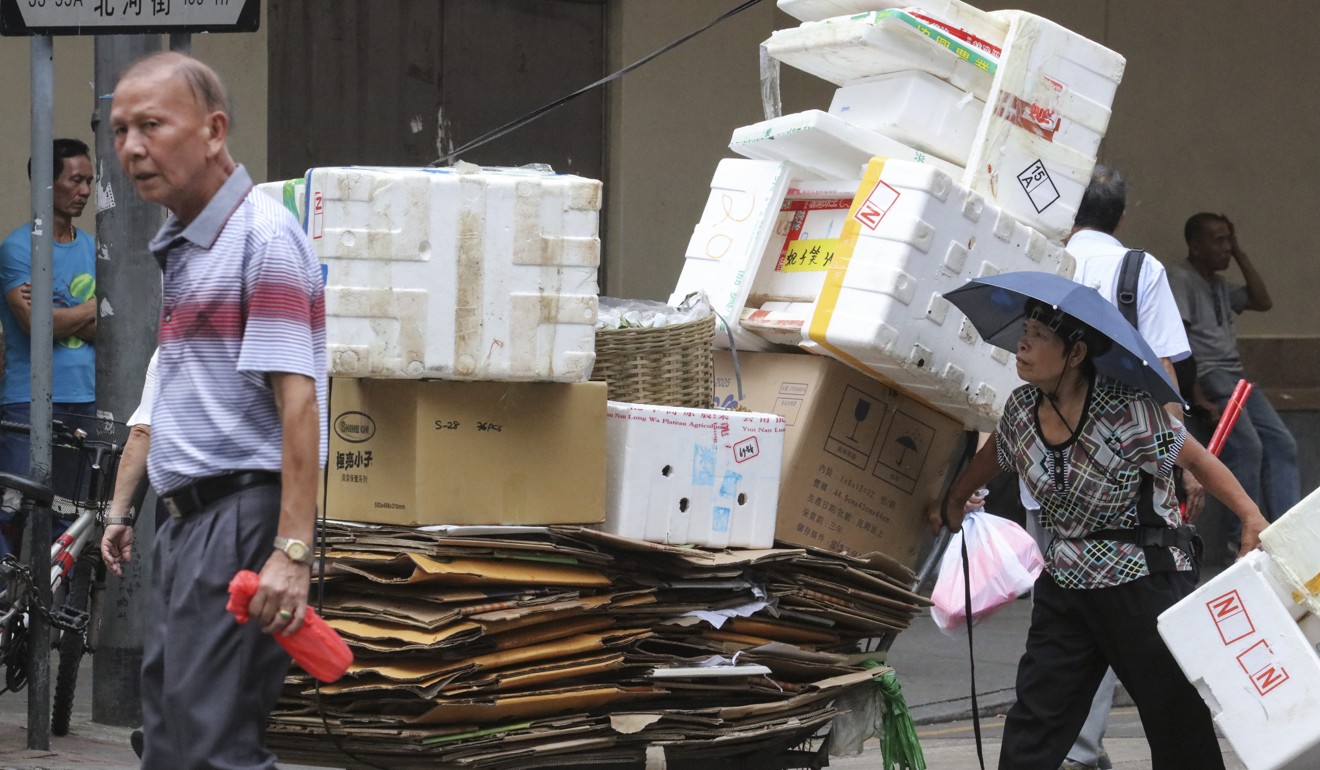
Sessions with individuals sometimes last for half an hour – a rare occurrence in packed public hospitals or even private clinics.
The centre has also teamed up with a group of pharmacists and students who make regular home visits to ensure elderly patients are taking their medicine the right way.
“These centres have a huge potential to be transformed into community health centres,” Lam said.
He added that with the help of nurses, social workers, nutritionists and occupational therapists, the centres could also conduct regular blood pressure and glucose level checks, as well as offering dietary advice and monitoring medication routines.
“Society needs a structural collaboration between the medical and social work sectors, where the health records of patients can be shared,” he said.
About eight to 10 centres could be selected for a pilot scheme before exploring how other centres could be equipped, he added.
Should Hong Kong’s elderly care sector import foreign labour amid chronic manpower shortage?
In the future, as they conduct home visits, nurses or care givers should also make good use of technology and seek doctors’ opinions in real-time with two-way communication, a process known as “telemedicine”, Lam said.
He said it could effectively lower the frequency of elderly people seeking accident and emergency services at public hospitals.
But Lam stopped short of saying whether this measure would appear in Carrie Lam’s policy blueprint.
In July, during her first question-and-answer session with lawmakers, the chief executive said the government would study the feasibility of eliminating queues for community care services.
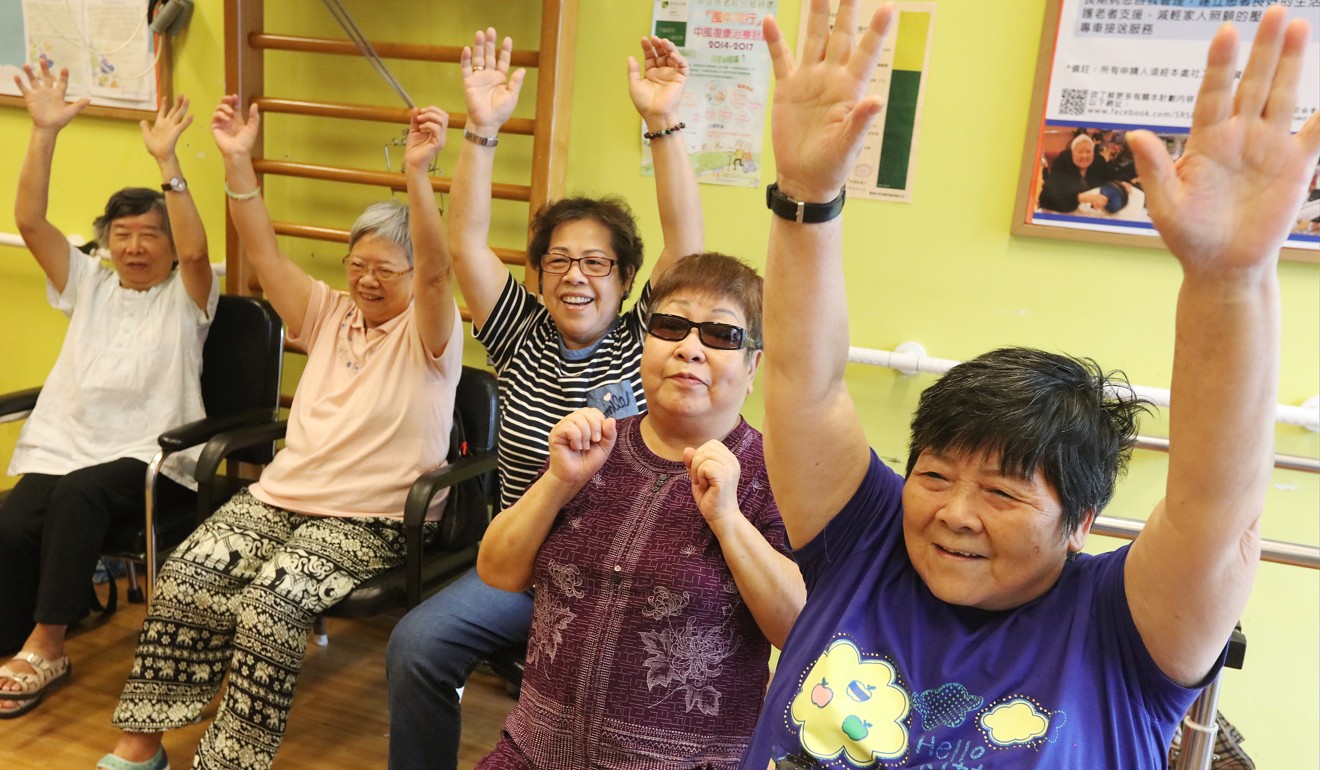
According to the source, Carrie Lam’s policy address would also mention that thousands of community care service vouchers – on top of the 5,000 that were issued earlier – would be made available to the elderly.
Tim Pang Hung-cheong from the Society for Community Organisation, an NGO helping the city’s poor, called the move a good start for the government to strengthen primary care at community centres.
But he said more should be done to clear obstacles hindering collaboration between the medical and social work fields.
“The Hospital Authority and these community centres have been helping the elderly in different ways but they each have no idea what the other is doing,” Pang said.
“A shared database is needed for a more coordinated health service system.”

